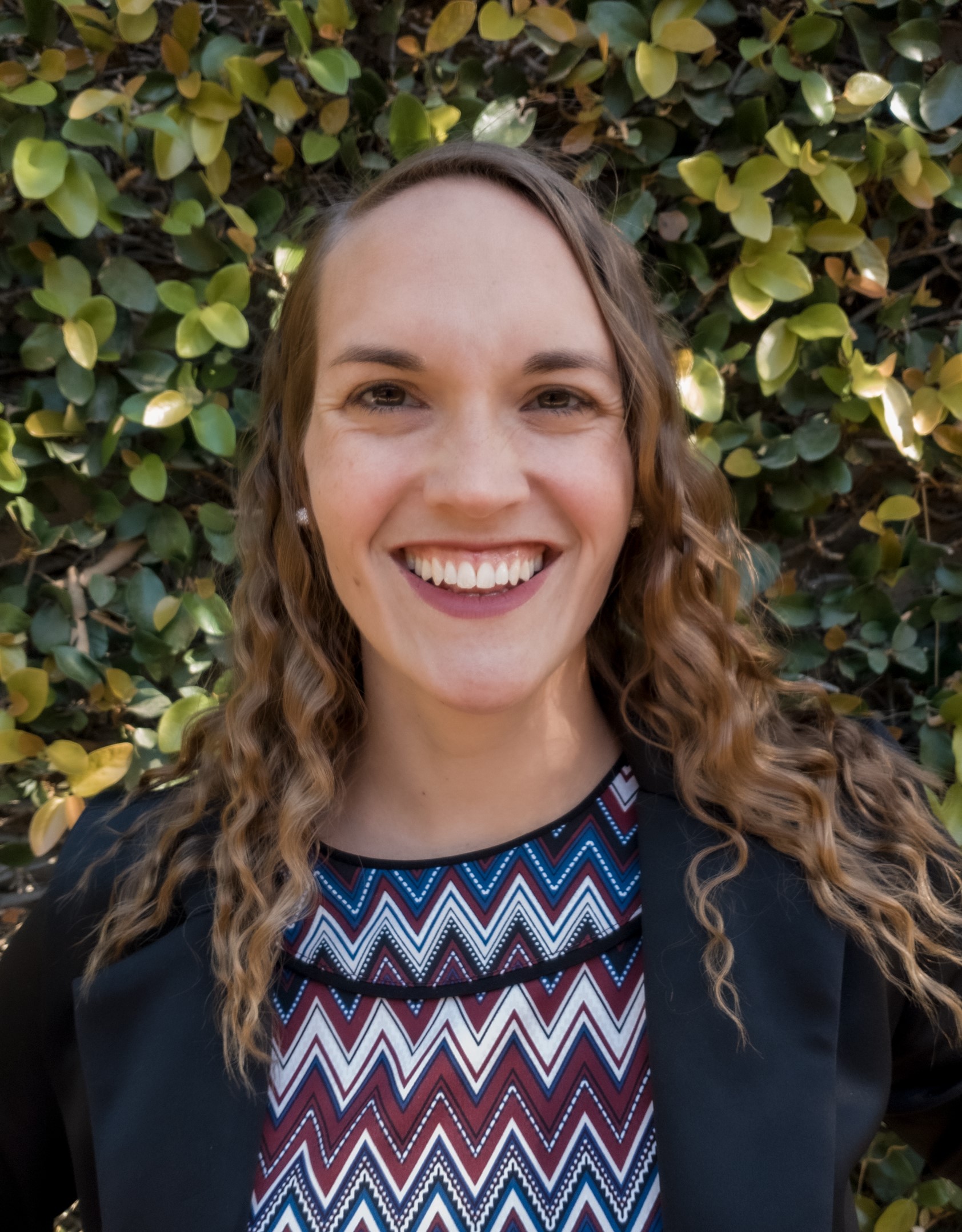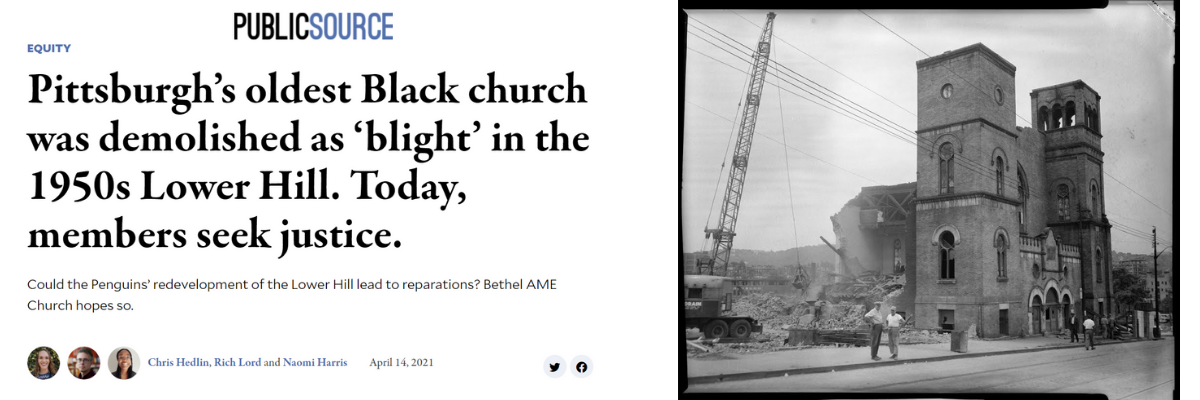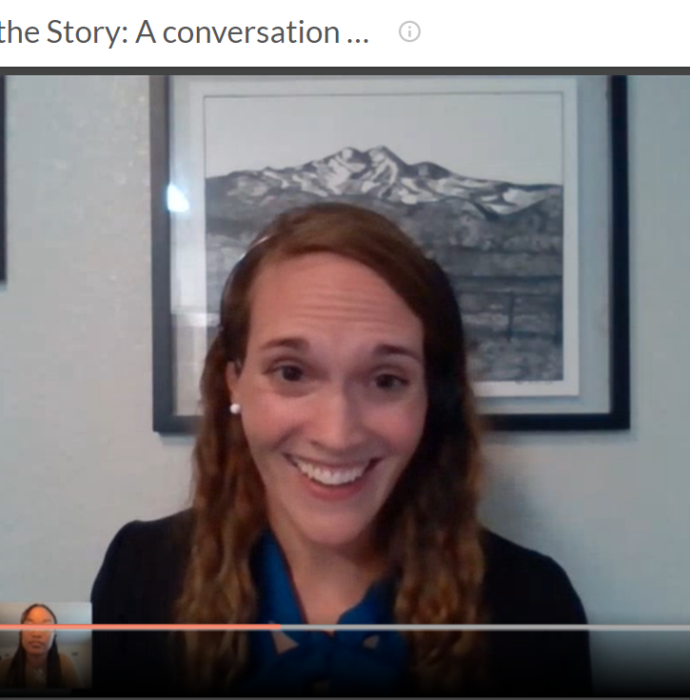 On any given day as a religion reporter in Pittsburgh, Chris Hedlin F’21 might be interviewing young queer Jews transforming traditions, Catholics confronting the challenges of parish mergers, or local pastors developing an anti-racist collective. But, no matter what topic is discussed, the conversation inevitably turns to the impact of the COVID-19 pandemic.
On any given day as a religion reporter in Pittsburgh, Chris Hedlin F’21 might be interviewing young queer Jews transforming traditions, Catholics confronting the challenges of parish mergers, or local pastors developing an anti-racist collective. But, no matter what topic is discussed, the conversation inevitably turns to the impact of the COVID-19 pandemic.
“There is no area of religion untouched by COVID-19,” said Hedlin. “People are hurting, and faith communities, which for many people are a primary support system both socially and spiritually, just can’t be there for them in the same ways as before.”
Hedlin received a Winter 2021 Leading Edge Fellowship to work as the faith and religion reporter at PublicSource, a nonprofit, digital-first news outlet based out of Pittsburgh. The Leading Edge Fellowship program launched in the summer of 2020 to rapidly respond to the challenges posed by the COVID-19 pandemic, with funding from the Henry Luce Foundation. The program placed PhDs pursuing research related to art, art history, religion, theology, and ethics with nonprofit partners across the country to document the impact of the pandemic on communities and advance collective understanding of the conditions that worsened that impact.
For Hedlin, that has meant using the skills honed while pursuing her PhD in English from the University of Illinois at Urbana-Champaign to practice deep local reporting and “public service journalism,” which is intended to help people become informed on issues of civic importance.
“My academic specialty was writing about religion as it was changing in response to crises or upheavals in the late nineteenth century, like the massive death toll of the Civil War or the racial violence of the Reconstruction Era,” she explained. “So, in some ways, when I saw the Leading Edge opportunity, I thought, ‘Hey, that’s what I already do! Just, you know, 175 years later.’”
Throughout her reporting, Hedlin has seen that COVID-19 has illuminated and heightened societal fault lines in faith communities, including structural racism, gender inequality, generational gaps, and class divides. She quoted American novelist Alice Walker, who wrote, “All history is current; all injustice continues on some level.”
In this moment of total upheaval, her knowledge of the past and ability to connect it to the present proved indispensable to her work as a journalist. This was particularly prevalent in a story Hedlin co-wrote about Bethel African Methodist Episcopal Church (Bethel AME), Pittsburgh’s oldest Black church, founded in 1808.

Courtesy of PublicSource. Photo: “Demolition of Bethel AME Church, Wylie Avenue and Elm Street, Lower Hill District, Pittsburgh, Pennsylvania, July 24, 1957.”
(Photo by Charles ‘Teenie’ Harris/Carnegie Museum of Art/Getty Images)
In the 1950s, the church’s building was destroyed among other businesses and homes in the Lower Hill District, billed as “blight elimination.” Bethel AME was “forced to move up the Hill, where they struggled to meet the Black community’s needs in the same way.” Now, 60 years later, the area is up for redevelopment, and the church is arguing for reparations, making a claim to the land where the church stood.
“The church is calling for justice in the present as a response to its vital role in the community throughout its long history,” Hedlin said. “Bethel’s current pastor Rev. Dale Snyder said at one point in our interviewing, ‘We’ve been here. We were here during slavery and we’re still here.’ That kind of collective consciousness over time, specifically in the context of the AME Church, is crucial to the story.”
Before joining PublicSource as a Leading Edge Fellow, Hedlin was a postdoctoral fellow and lecturer at Valparaiso University in Indiana. The Leading Edge Fellowship has allowed her to apply humanistic methods and knowledge to a new field, while providing essential financial and structural support.
“I wish every emerging scholar could have a year like this, where they are fully immersed in public-facing work,” Hedlin said. “This past year has reinforced for me that public-facing scholarly work is a true exchange: each party needs the other’s voices, resources, and skills. I’d love to see more of that potential collaboration happen.”

I wish every emerging scholar could have a year like this, where they are fully immersed in public-facing work. This past year has reinforced for me that public-facing scholarly work is a true exchange: each party needs the other’s voices, resources, and skills.
Chris Hedlin
2021 Leading Edge Fellow
Photo: Hedlin participates in virtual PublicSource event series “The Story Behind the Story” on September 6, 2021.
Prior to Hedlin’s arrival, PublicSource did not have a faith and religion reporter, which meant she had to “build the beat” herself, in addition to learning about a new city and transitioning from the classroom to a newsroom. Though it took some time and an openness to learning on the job, she now has a portfolio of public-facing writing and a new confidence to pursue a wide variety of stories related to faith and religion.
“At the start of the fellowship, I didn’t feel like I could lay claim to being a journalist,” she said. “I would introduce myself as a humanities scholar who is working in journalism. But now I feel comfortable saying, ‘I’m a journalist.’ When I think about that transformation, just in this one year, it’s quite astounding. I would never have had all the experiences of the last year without ACLS’s and the Luce Foundation’s support.”
Her fellowship year has also given Hedlin a newfound appreciation for the work of journalists and the in-depth local reporting that outlets like PublicSource provide.
“I feel very lucky to have been at PublicSource, where I got to have so many new opportunities in a supportive team environment,” she noted. “I felt trusted, appreciated and challenged, which is about the best combination you can ask for.”
Read Chris Hedlin’s work in PublicSource.
Learn more about the Henry Luce Foundation’s work to advance public knowledge, including the Leading Edge Fellowships.
LEARN MORE
Leading Edge Fellowships
In summer of 2021, with support from The Andrew W. Mellon Foundation, ACLS launched a new round of Leading Edge Fellowships designed to demonstrate the capacity of the humanities to advance justice and equity in society. The next competition will open in early February 2022.
Stay in Touch
Sign up for news about fellowship and grant programs, including the next round of Leading Edge Fellowships.




 On any given day as a religion reporter in Pittsburgh,
On any given day as a religion reporter in Pittsburgh, 